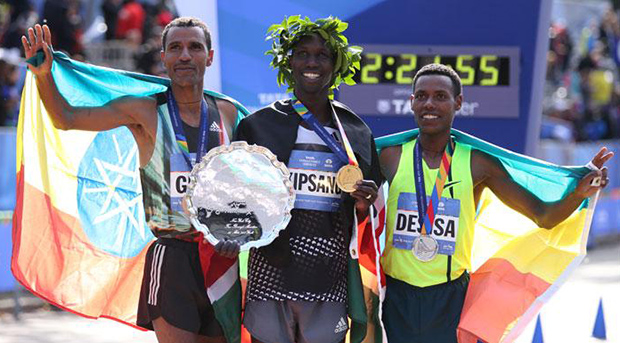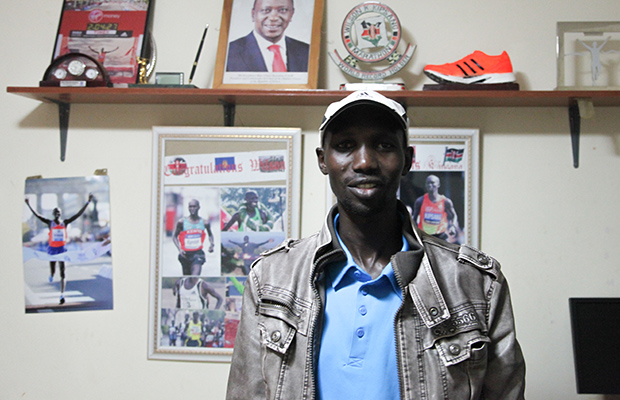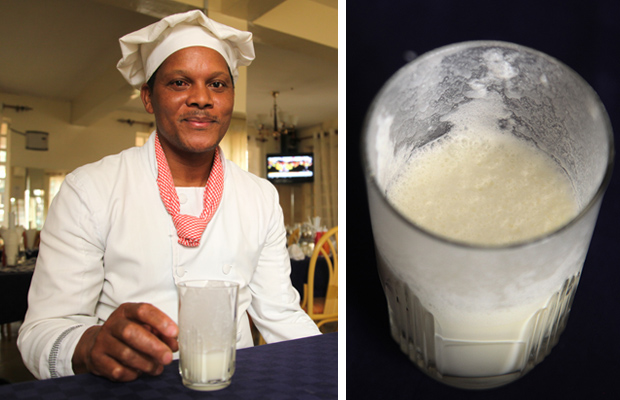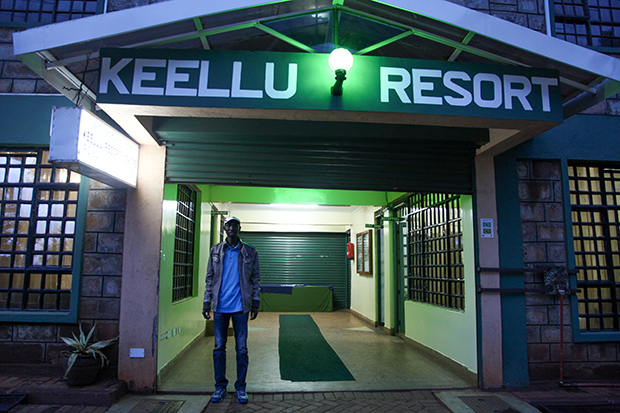
ITEN, KENYA — For someone who runs very fast, Wilson Kipsang is a man who can’t be hurried.
A downpour last Friday morning marked the arrival of Kenya’s short rainy season, turning the dirt roads of Iten to mud, and forcing him to push back his training run to midday. With the New York City Marathon just over a week away, it was a relatively short run, but then again, the defending champion is a busy guy. Two years ago he opened the Keellu Resort Centre, a hotel that has become an unofficial headquarters for up-and-coming runners, and he can’t pass through the restaurant without greeting every patron by name.
It’s chilly at 8,000 feet in the western highlands and a small charcoal brazier burns briskly in the corner as guests sit working or chatting while sipping milky tea. Kipsang finally extracts himself from a conversation and with an easy smile he beckons the way upstairs to his office, a converted guest room bedecked with finish line photographs, trophies and a framed portrait of Kenyan president Uhuru Kenyatta.
RELATED: The 30 Best Marathons in the Entire World
Kipsang hails from the Kalenjin tribe, which has produced many of the world’s most dominant distance runners. He set a marathon world record in Berlin in 2013 with a time of 2:03:23 — a record that was broken by his fellow Kenyan Dennis Kimetto a year later on the same course. But that record may not hold for long either, if Kipsang has anything to do with it. The 33-year-old former police officer opened up to DailyBurn about his style of running, the importance of investing in his community and what drives him to keep chasing after his goals.
Meet Wilson Kipsang, Defending NYC Marathon Champ

The NYC Marathon is almost here. Are you ready?
I’m looking forward to go and defend my title. I’ve trained and prepared very well — fully, fully, fully prepared. I’m ready for it.
I’ve heard about the “death runs” that runners around here do every Saturday morning, up to 50 kilometers (31 miles) up and down the Rift Valley escarpment. You won’t be out with them tomorrow, will you?
(laughs) For me now, I’m tapering, coming down. So I don’t really push so much in training. Tomorrow will be a long run, but it will be my shortest long run, just 25K (15.5 miles). We have also named some training routes the Boston or London route so as we prepare we can compare our time to the real course. What they named Boston has a very big hill (to mimic the notorious Heartbreak Hill).
You grew up running barefoot. Can you tell us about your running style?
You know, sometimes running style is something you have to work on, and it can be very difficult to change because you run in the posture where you feel you run easy. It differs for some people, but for me, I really step so much in the front. I don’t land with the whole foot, just land on the front. When you are running in the front, you find that the revolutions, the frequency of them, can be much faster.
RELATED: 5 Expert Tips for Proper Running Form
Many runners in Iten seem to swear by the benefits of the traditional Kalenjin drink ‘mursik’ (boiled milk which is then cooled, fermented, and mixed with ash). Do you incorporate it into your diet as well?
Yeah, I think mursik, the traditional fermented milk, is really good because we are used to it from childhood. Just after taking dinner of ugali (cooked maize flour) and vegetables, the accompaniment is mursik. The milk contains many nutrients, and when it is fermented [it becomes] sweet. I like it so much.

What inspired you to open the Keellu Resort here?
Setting up a hotel like this, for me, is a way of giving back to the community. And also it’s a long-term investment for me because when I retire, the income can sustain your family. It will keep you going. It’s also motivation for the up-and-coming athletes, the young ones. They will see that Kipsang has run, he’s set up a hotel like this, so running is good. You see? So the young ones can get motivated to train and run and maybe make money, and do something like Kipsang has done. It also creates employment in the community. I have 35 staff here, so the local community gets employed, gets salaries. We buy vegetables from the local community. So they benefit a lot. It’s not only for me.
RELATED: The 20 Most Inspiring Runners in the U.S.
Iten calls itself the “Home of Champions” and it really is incredible how many people are out on the streets running — you even see the kids running to school. The town has become almost a Mecca for runners. How has it changed since you first arrived?
I came to Iten in 2005. When I first came here there were few athletes who were training… The locals didn’t really care about it much; it was just like any other activity. But you see, when the athletes who are known by the community start to do well, the community also starts to love athletics. Before, when races were done outside Kenya, people could rarely watch on the TV, but nowadays when it is London, Boston, everywhere, the community has on all the screens to watch, and to cheer them on. It shows a kind of passion, that people feel like they are part of it. So it’s really nice, coming back to celebrations. And then there are more athletes coming after school and joining, so now 70 percent of inhabitants of Iten are athletes. If you visit the rental houses where people are staying at least two out of every three houses are athletes…So it’s something that’s becoming more of a culture in Iten.

Do your children want to become runners?
I have four children. They are eleven, eight, six, and one year old. They’re still in school so I don’t know yet if they’ll really run, but I think at least one will be interested…It’s all about developing that culture that they should really love athletics, from the bottom of their hearts. You don’t need to push them. They have to be the ones who decide that they want to run.
RELATED: The 11 Best Running Camps in the U.S.
What do you love most about running?
What I love most about running is the competition. I like that kind of challenge, so that’s what has really been keeping me in the sport, trying to beat the time of another athlete, another course record. For me if I run this time, next time I want to see if can improve that time. It gets me to train more so I can break this record. That kind of challenge has made me train and prepare so much for the race this year. That is it.
Are you looking forward to being back in New York? What’s your favorite thing about the city?
In New York I like so much, this thing, Times Square. You see a lot of photos, pictures, screens, lots of people, it’s really nice. More, more, more crazy than Iten. And training in Central Park — it’s a nice place to be.
Iten, Kenya: Home of Champions
Want more insights into the life of a typical elite runner in Iten? Meet Wilson Kipsang’s old friend, Elias Kiptum Maindi, who has won marathons all over Europe. See the home he built with his winnings, find out how mursik is made, and learn what he thinks of Kipsang’s chances on Sunday.
https://youtu.be/9HlabBvscTQ
To follow Kipsang’s 26.2 journey through all five boroughs, find him on Twitter and via the TCS New York City Marathon mobile app. And be sure to check out this guide to running and spectating this year’s course!
